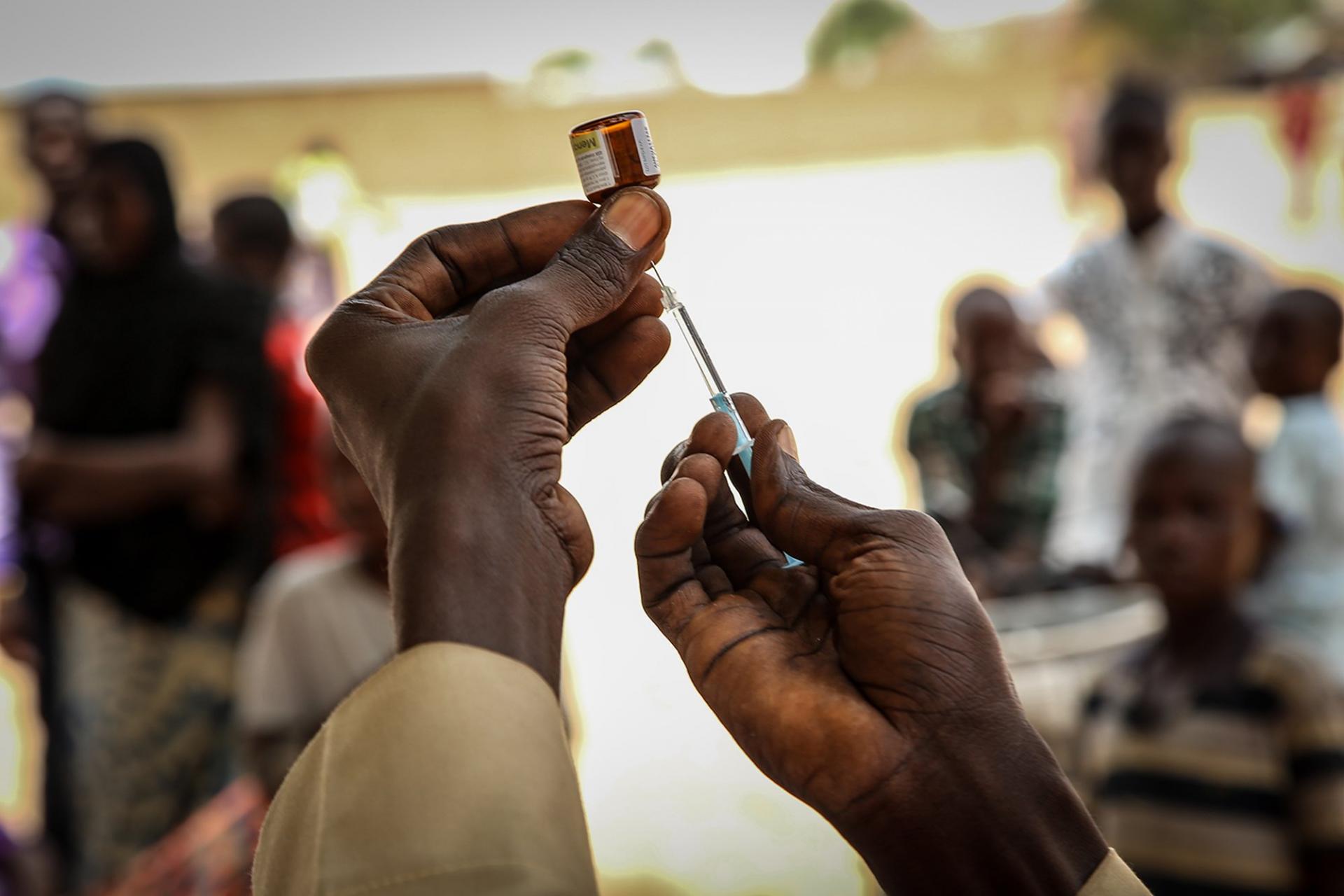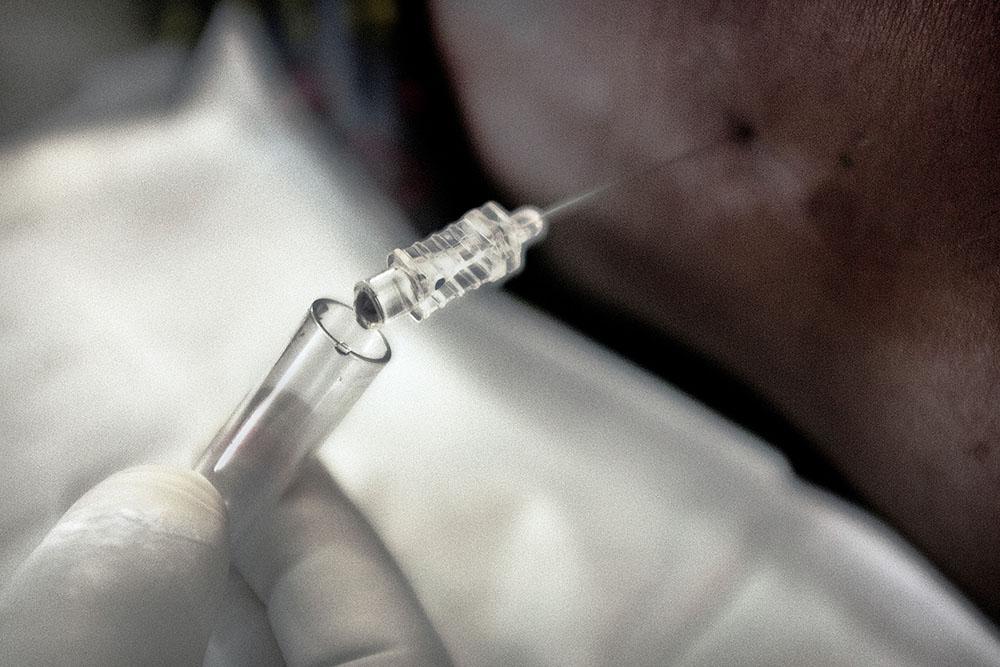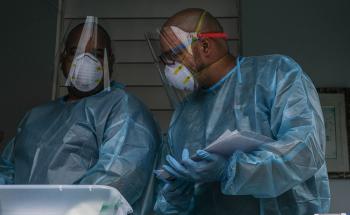Breakthrough in treatment of HIV-related cryptococcal meningitis but Gilead must fulfil its promise to scale up access to lifesaving drug
Today, as preliminary AMBITION trial results demonstrated a breakthrough in the treatment of HIV-related cryptococcal meningitis, simplifying and shortening treatment by using a single dose of liposomal amphotericin B (L-AmB) in combination with existing oral therapy, Doctors Without Borders (MSF) called on the US pharmaceutical corporation Gilead Sciences, the world’s key supplier of quality-assured L-AmB, to immediately ensure an adequate global supply of this lifesaving drug and expand its “access” price to all low- and middle-income countries (LMICs).
In 2018, Gilead promised to reduce the price per vial of L-AmB to the “access” price of R236.28 (US$16.25) for 116 LMICs. However, despite Gilead’s pledge of this lower price, it has been applied in just 48 of the 116 countries, of which only 22 have the product registered and available.
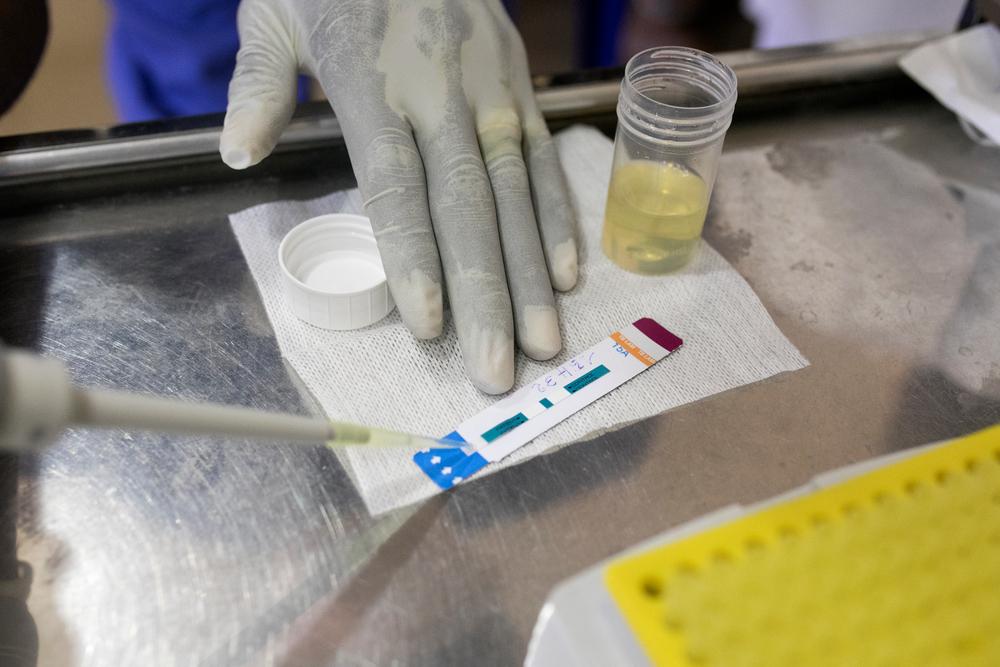
“Cryptococcal meningitis is one of the main causes of death of people living with HIV, and while diagnostic tests and medicines for prevention and treatment exist, access in low- and middle-income countries is extremely limited,” said Dr Gilles van Cutsem, HIV/TB adviser with MSF in South Africa. “The results of the AMBITION trial make ending cryptococcal meningitis deaths by 2030 an achievable goal, but it is one we risk sacrificing if our patients can’t access L-AmB. Gilead must put lives before profits, implement its “access” price for L-AmB and do everything it can to secure global supply of this lifesaving drug.”
L-AmB is an essential medicine for the treatment of neglected tropical diseases such as visceral leishmaniasis and fungal infections including cryptococcal meningitis, the second-leading killer of people living with HIV after tuberculosis. Although it is the least toxic treatment available to treat cryptococcal meningitis, access to L-AmB in LMICs is extremely limited.
This is primarily due to a reluctance to adopt the drug in treatment protocols because of Gilead’s high prices and limited registration, both of which fail to assure countries that Gilead will sustain a secured supply of L-AmB. In light of its recent increased use in the treatment of mucormycosis (black fungus) in patients with COVID-19, access to L-AmB has become even more difficult.
“It is shameful that people living with HIV in low- and middle-income countries have been waiting almost three years for Gilead to implement their promise to lower the price of the lifesaving drug L-AmB,”Raef Makar, HIV Pharmacist, MSF Access Campaign
Quality-assured generic versions of L-AmB are urgently needed to increase treatment supply, and to lower prices through competition. Generic companies have been working for years to develop L-AmB and face multiple hurdles. Gilead has long hidden their liposomal technology – a key component of manufacturing L-AmB – as a trade secret, which combined with limitations on availability of raw materials and challenging regulatory pathways has significantly delayed generic competition.
Today’s preliminary AMBITION trial results add further evidence for the need to scale up access to L-AmB and could be a gamechanger in the treatment of cryptococcal meningitis. Moving from a 7-day IV regimen to single high-dose of L-AmB, in combination with oral flucytosine and fluconazole, would make treating cryptococcal meningitis easier, whilst also reducing the major cost driver of hospitalisation.
In addition, the single dose of L-AmB shows non-inferiority and reduced toxicity when compared with the current 7-day treatment. This simplification of treatment may also contribute to achieving the global goal of ending cryptococcal meningitis deaths by 2030. If WHO recommends this shortened treatment as the preferred first-line treatment for cryptococcal meningitis, this will require a significant increase in the supply of affordable L-AmB for the estimated annual 108,000 cases of cryptococcal meningitis globally.
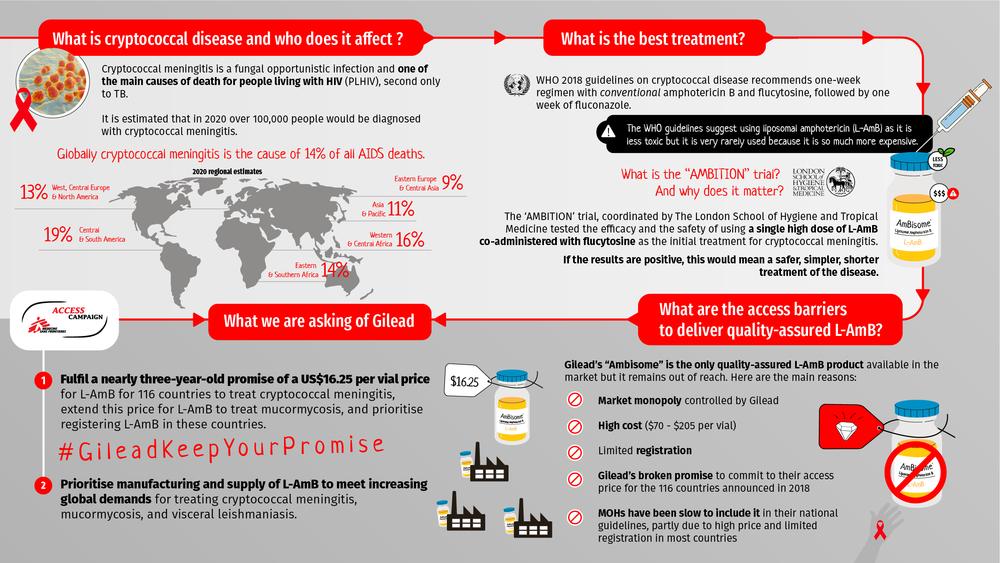
View a larger sized infographic
“It is shameful that people living with HIV in low- and middle-income countries have been waiting almost three years for Gilead to implement their promise to lower the price of the lifesaving drug L-AmB,” said Raef Makar, HIV Pharmacist, MSF Access Campaign. “Gilead must urgently implement its “access” price for every country in need. In addition, we urge Gilead to share publicly their calculations behind the “access” price, their drug registration footprint, and their manufacturing and supply capacities so to verify that they, as the key supplier of quality-assured L-AmB, are indeed able to fulfil the global demands for L-AmB for all diseases. People living with HIV and others who are in urgent need of this lifesaving drug cannot afford to spend any more time waiting on Gilead’s empty promises.”
Cryptococcal meningitis:
Cryptococcal meningitis is a severe fungal infection of the brain and surrounding membranes that causes about 14% of AIDS-related deaths worldwide, three-quarters of which occur in sub-Saharan Africa. Despite major progress over the last decade in expanding access to antiretroviral therapy and reducing HIV-related deaths, up to half of people living with HIV present to care with advanced forms of the disease, and many continue to die from HIV-related opportunistic infections such as cryptococcal meningitis.
Among the estimated 223,100 incident cases of cryptococcal meningitis globally in 2014, 181,100 deaths were reported of which 135,900 occurred in sub-Saharan Africa. Cryptococcal meningitis affects people living with HIV whose immune systems are severely suppressed, leaving them vulnerable to such deadly opportunistic infections. MSF treats people with the infection in all its HIV programmes, including in the Central African Republic, the Democratic Republic of Congo, eSwatini, Guinea, India, Kenya, Malawi, Mozambique, Myanmar and South Africa.
Flucytosine, the other drug recommended for treatment of cryptococcal meningitis, in combination with L-AmB, is also difficult to access presently. Even though the drug has been off-patent for many years, the low demand has resulted in very little interest among generic manufacturers to produce it, with a few quality-assured sources available but at very high prices.
Other L-AmB needs:
L-AmB is a crucial treatment for cryptococcal meningitis and the long-standing neglected tropical disease, visceral leishmaniasis (kala azar), as well as other systemic fungal infections. Civil society has written to Gilead Sciences, WHO and ACT-A highlighting the need for more affordable treatment for the rise of serious invasive fungal diseases that are life-threatening for COVID-19 survivors and HIV+ people. See https://msfaccess.org/open-letter-ambisome-Gilead and https://msfaccess.org/open-letter-ambisome-WHO
